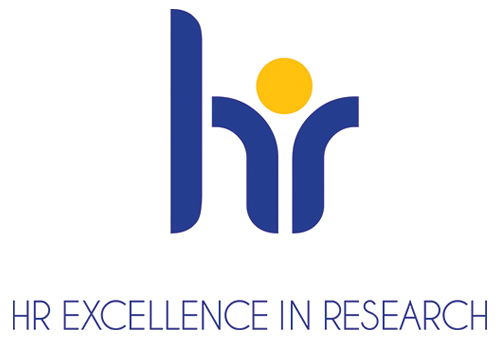HR Excellence in Research
In November 2019, Södertörn University was recognised by the European Commission for its commitment to good working conditions and the development of career support for researchers through compliance with The European Charter for Researchers and the Code of Conduct for the Recruitment of Researchers ('Charter & Code') External link..
External link..
HRS4R
Södertörn University has been recognised by the European Commission for its human resources' excellence in research and for its continuous commitment and efforts to foster good working conditions and development for its researchers.
This qualification for HR excellence is based on Södertörn University's work in the "Human Resource Strategy for Researchers" process. This is a quality assurance tool that helps employers and financiers to implement the principles of the European Charter for Researchers and the Code of Conduct for the Recruitment of Researchers.
The Human Resources Strategy for Researchers (HRS4R) is a tool that helps research institutions and funding organisations with voluntary compliance with the Charter & Code, by way of internal self-assessment. It is not a prerequisite for participation in the EU Research Framework Programme, but the acknowledgement of the university and the award of the logo is linked to compliance with Article 32 of the H2020 contract External link., providing the obligation to take measures to implement the European Charter and Code for the benefit of all researchers and their institutions.
External link., providing the obligation to take measures to implement the European Charter and Code for the benefit of all researchers and their institutions.
Background
The background to the HRS4R process is the EURAXESS strategy. The "HR Excellence in Research" award identifies institutions and organisations as providers and supporters of a stimulating and favourable working environment. In 2005, the European Commission launched "The European Charter for Researchers" and a "Code of Conduct for the Recruitment of Researchers" as part of the establishment of a common European Research Area (ERA) External link., to support a strong European research area and to contribute to researchers' international and intersectoral mobility. This initiative is part of the efforts to establish a functioning and open European Research Area, under the Lisbon process to create jobs and growth in Europe.
External link., to support a strong European research area and to contribute to researchers' international and intersectoral mobility. This initiative is part of the efforts to establish a functioning and open European Research Area, under the Lisbon process to create jobs and growth in Europe.
The Charter and Code contain 40 principles External link. with recommendations on the responsibilities and obligations of researchers and their employers in relation to four main areas:
External link. with recommendations on the responsibilities and obligations of researchers and their employers in relation to four main areas:
1. Ethical and professional conditions
2. Recruitment and selection
3. Working conditions
4. Research training and career development
The principles specify the roles, responsibilities and entitlements of researchers. The intention is to ensure that employers succeed in generating, transferring, sharing and disseminating knowledge and developing technology, as well as ensuring career development and mobility for researchers.
As a university with a strong focus on internationalisation and engagement with society, Södertörn University wanted to join the "Charter & Code" as a validation of our work to actively create attractive jobs for researchers, nationally and internationally.
The Internal Gap Analysis is provided below, describing our current praxis and identifying potential fields of improvement, in accordance with the 40 principles of the Charter & Code. The principles are largely implemented as practice, and fields for improvement identified by the Faculty Board and university administration are already being worked on as part of general organisational development and improvements to practice in research and HR policies.
Further information about HRS4R can be found on the Euraxess website. External link, opens in new window.
External link, opens in new window.
Process description Pdf, 226.8 kB, opens in new window.
Pdf, 226.8 kB, opens in new window.
Gap analysis Pdf, 626.6 kB, opens in new window.
Pdf, 626.6 kB, opens in new window.
Checklist Pdf, 326 kB, opens in new window.
Pdf, 326 kB, opens in new window.
Action plan Pdf, 593.7 kB, opens in new window.
Pdf, 593.7 kB, opens in new window.
.webp)
 External link, opens in new window.
External link, opens in new window.



